The Importance of Childhood Education
As a parent, I have always believed in the power of education to shape a child’s future. I firmly believe that childhood education is the foundation upon which lifelong learning is built. During these formative years, children are like sponges, absorbing knowledge and experiences that will shape their abilities and attitudes in the years to come. It is during this crucial period that they develop vital cognitive, social, and emotional skills that will serve as the building blocks for their future success.
One of the key reasons why childhood education is so important is that it lays the groundwork for academic achievement. Research has shown that children who receive a quality early education are more likely to perform well in school and go on to pursue higher education. Moreover, these children develop a love for learning, which stays with them throughout their lives. By investing in their education during these early years, we are setting them up for a lifetime of learning and personal growth.
Benefits of Early Childhood Education
Early childhood education provides numerous benefits that can have a lasting impact on a child’s development. Firstly, it fosters the development of essential cognitive skills such as language proficiency, problem-solving abilities, and critical thinking. By engaging in age-appropriate activities, children learn to explore their environment, ask questions, and think creatively. These skills form the foundation for future academic success and enable children to navigate the challenges they will encounter throughout their lives.
Secondly, childhood education plays a vital role in developing social and emotional skills. Through interactions with peers and educators, children learn to communicate, cooperate, and empathize. They develop a sense of self and learn how to manage their emotions effectively. These skills are essential for building healthy relationships, resolving conflicts, and adapting to new social environments. By fostering social and emotional development, childhood education equips children with the tools they need to thrive in both personal and professional settings.
Lastly, early childhood education promotes physical development and well-being. Educational programs often incorporate physical activities and promote healthy habits such as proper nutrition and regular exercise. By developing an early understanding of the importance of physical well-being, children are more likely to adopt lifelong habits that contribute to their overall health and well-being.
Developmental Milestones in Childhood Education
Childhood education is a dynamic process that involves reaching specific developmental milestones. These milestones serve as markers to track a child’s progress and ensure that they are on track for future success. From infancy to early childhood, children experience rapid growth and development in various areas, including motor skills, language acquisition, and cognitive abilities.
During infancy, important milestones include the development of fine and gross motor skills, such as holding objects, rolling over, and crawling. As children enter toddlerhood, they start to develop their language skills, which enable them to communicate their needs and understand simple instructions. Cognitive milestones, such as problem-solving and memory development, also become more evident during this stage.
Preschool years are characterized by significant cognitive, social, and emotional development. Children learn to recognize letters and numbers, engage in pretend play, and develop friendships with peers. These years are critical for laying the foundation for future academic success and instilling a love for learning.
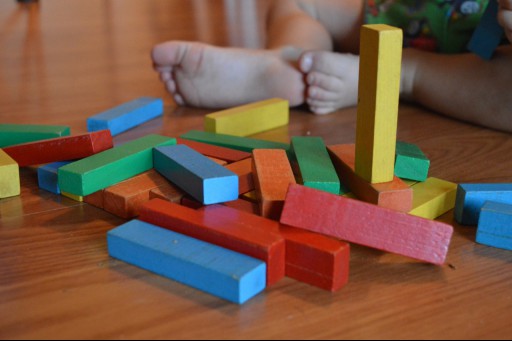
Different Approaches to Childhood Education
There are various approaches to childhood education, each with its own unique philosophy and teaching methods. Some common approaches include Montessori, Reggio Emilia, and Waldorf education.
The Montessori approach emphasizes hands-on learning and self-directed exploration. Children are given the freedom to choose their activities and work at their own pace. This approach encourages independence, problem-solving, and self-discipline.
Reggio Emilia education focuses on a child-centered curriculum, where children actively participate in the learning process. The approach emphasizes collaboration, creativity, and self-expression. Teachers act as facilitators, guiding children’s learning based on their interests and curiosity.
Waldorf education places a strong emphasis on holistic development, integrating academics, arts, and practical skills. The approach nurtures creativity, imagination, and a connection with nature. It also incorporates a consistent daily rhythm and a strong sense of community.
While each approach has its own strengths and benefits, it is important for parents to consider their child’s unique needs and learning style when choosing a childhood education program.
Creating a Safe and Stimulating Learning Environment
In order to foster optimal learning and development, it is essential to create a safe and stimulating learning environment for children. This environment should be conducive to exploration, creativity, and collaboration. Here are some key elements to consider when designing such an environment:
- Physical safety: Ensure that the learning space is free from hazards and equipped with age-appropriate materials and equipment. Regular safety checks should be conducted to maintain a safe environment for children.
- Emotional safety: Create an inclusive and supportive atmosphere where children feel valued, respected, and free to express themselves. Encourage open communication and provide opportunities for children to discuss their feelings and emotions.
- Engaging materials: Provide a wide range of materials and resources that promote active learning and exploration. These can include books, art supplies, science kits, and manipulatives. Rotate materials regularly to keep children engaged and interested.
- Flexibility and adaptability: Allow for flexibility in the learning environment to accommodate different learning styles and preferences. Create spaces for individual work, group activities, and quiet reflection.
By creating a safe and stimulating learning environment, educators and parents can maximize the potential for learning and development in childhood education.
The Role of Play in Childhood Education
Play is a fundamental aspect of childhood education and a powerful tool for learning and development. It is through play that children explore, experiment, and make sense of the world around them. Play allows children to develop their creativity, problem-solving skills, and social interactions.
There are different types of play that contribute to different aspects of a child’s development. Physical play, such as running, jumping, and climbing, helps develop gross motor skills and coordination. Imaginative play, such as pretend play and role-playing, promotes creativity and language development. Constructive play, such as building with blocks or puzzles, enhances problem-solving and fine motor skills.
Incorporating play into the curriculum allows children to engage in joyful, hands-on learning experiences. It encourages active participation, curiosity, and a love for learning. Educators and parents can support play by providing open-ended materials, creating imaginative play spaces, and allowing for unstructured playtime.
Supporting Social and Emotional Development in Childhood Education
Social and emotional development is a critical aspect of childhood education. It is during these early years that children learn to navigate social interactions, develop empathy, and regulate their emotions. Here are some strategies to support social and emotional development in childhood education:
- Building positive relationships: Foster a warm and nurturing environment where children feel safe to form relationships with their peers and educators. Encourage cooperation, empathy, and respect for others.
- Emotional literacy: Teach children to recognize and express their emotions in healthy ways. Provide opportunities for children to discuss their feelings and help them develop strategies for managing their emotions.
- Conflict resolution: Teach children problem-solving and conflict resolution skills. Encourage open communication, active listening, and compromise. Help children understand the perspectives of others and find mutually beneficial solutions.
- Mindfulness and self-regulation: Teach children mindfulness techniques to help them develop self-awareness and self-regulation. Encourage deep breathing, relaxation exercises, and reflection.
By providing a supportive environment and teaching social and emotional skills, childhood education can help children develop strong interpersonal skills and emotional intelligence that will serve them well in all aspects of life.
Nurturing Cognitive Skills in Childhood Education
Cognitive skills are essential for academic success and lifelong learning. Childhood education plays a crucial role in nurturing these skills and building a solid foundation for future intellectual growth. Here are some strategies to nurture cognitive skills in childhood education:
- Language development: Provide rich language experiences through storytelling, reading aloud, and conversation. Encourage children to ask questions, express their thoughts, and engage in meaningful discussions.
- Problem-solving and critical thinking: Present children with age-appropriate challenges and problem-solving activities. Encourage them to think critically, analyze information, and explore different solutions.
- Mathematical thinking: Introduce mathematical concepts through hands-on activities, games, and manipulatives. Help children develop a strong number sense, problem-solving abilities, and an understanding of mathematical relationships.
- Scientific inquiry: Foster curiosity and a love for science by providing opportunities for hands-on experiments and observations. Encourage children to ask questions, make predictions, and draw conclusions based on their observations.
By incorporating these strategies into childhood education, educators can help children develop strong cognitive skills, a love for learning, and a curiosity that will carry them through a lifetime of intellectual growth.
The Impact of Childhood Education on Lifelong Learning
Childhood education has a lasting impact on a person’s lifelong learning journey. It sets the stage for future academic success, shapes attitudes towards learning, and equips individuals with the skills and knowledge they need to navigate the challenges of the modern world.
Research has consistently shown that children who receive a quality early education are more likely to perform well academically, graduate from high school, and pursue higher education. They also develop a love for learning, which translates into a lifelong pursuit of knowledge and personal growth.
Furthermore, childhood education provides the foundation for essential skills such as critical thinking, problem-solving, and communication. These skills are not only crucial for success in the classroom but also in the workplace and everyday life. By investing in childhood education, we are investing in the future success and well-being of individuals and society as a whole.

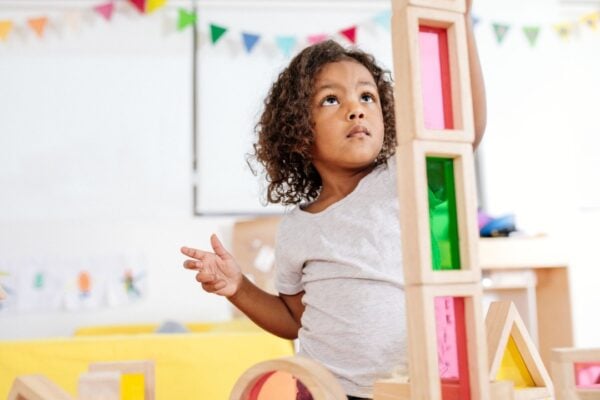
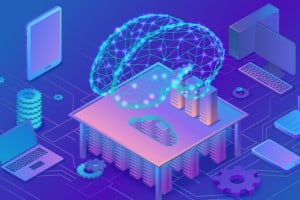
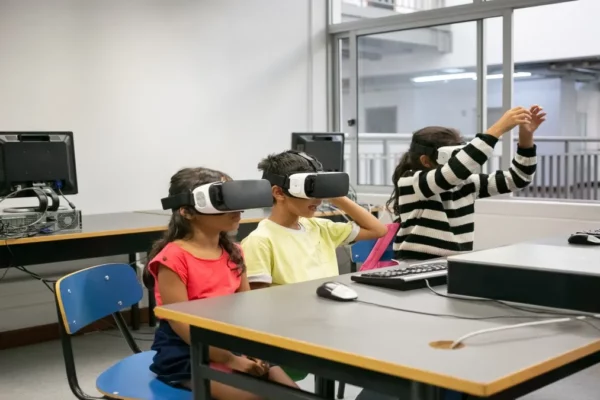

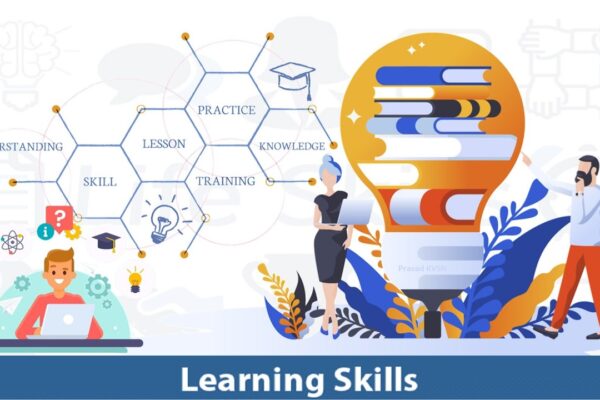
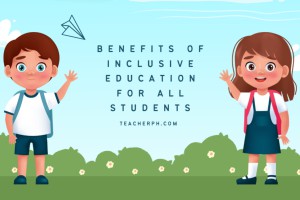
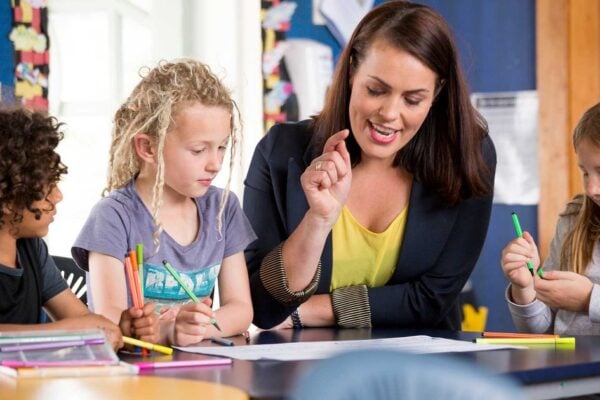
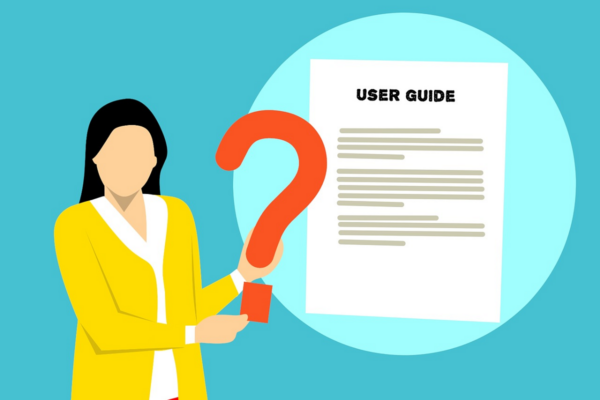

Comments on " Building Blocks for Lifelong Learning: Exploring the Benefits of Childhood Education" :